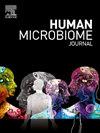粪便菌群移植对治疗炎症性肠病有用吗?
Q1 Medicine
引用次数: 1
摘要
溃疡性结肠炎和克罗恩病是炎症性肠病(IBD)中特发性疾病的主要群体。病因包括环境因素、遗传因素和免疫反应。发病机制多样;然而,到目前为止,还没有开发出保证有效的治疗方案。这篇综述包含了与IBD的病理生理学和当前治疗方案相关的信息。众所周知,IBD是由肠壁的组织破坏性炎症反应引起的;这就是为什么下调免疫反应可以使受损的粘膜愈合,并使肠道的生理功能恢复正常。主要的治疗选择仍然是皮质类固醇、免疫调节剂、抗生素、益生菌和一系列新药。它们的作用包括调节细胞因子、中性粒细胞衍生因子、粘附分子和活性氧/氮代谢物。单克隆抗肿瘤坏死因子作为英夫利昔单抗重组抗炎细胞因子或相关基因治疗也被广泛应用。尽管如此,考虑到微生物群与免疫系统之间复杂的关系导致的异常炎症反应,粪便微生物群移植(FMT)被认为是IBD治疗的革命性变化。有必要提到生态失调在ibd发病机制中可能起的关键作用。本文综述了FMT治疗ibd的相关文献。本文章由计算机程序翻译,如有差异,请以英文原文为准。
Is a Fecal Microbiota Transplant Useful for Treating Inflammatory Bowel Disease?
Ulcerative colitis and Crohn’s disease represent the major groups of idiopathic disorders in inflammatory bowel disease (IBD). The etiology includes environmental factors, genetic factors, and immune responses. The pathogenesis is diversified; however, no guaranteed curative therapeutic regimen has been developed so far. This review contains information related to pathophysiology and current treatment options for IBD. It is known that IBD is caused by tissue-disruptive inflammatory reactions of the gut wall; that is why downregulation of the immune responses allows the healing of the damaged mucosa and allows the resetting of the physiological functions of the gut back to normal. The main treatment options are still corticosteroids, immunomodulators, antibiotics, probiotics, and a series of new agents. Their effects include modulation of cytokines, neutrophil-derived factors, adhesion molecules, and reactive oxygen/nitrogen metabolites. The monoclonal antitumor necrosis factor as infliximab recombinant anti-inflammatory cytokines or related gene therapy is also used nowadays. Still, the fecal microbiota transplantation (FMT) is considered to revolutionize the therapy in IBD, considering the abnormal inflammatory response due to the complicated relationship between microbiota and the immune system. It is imperative to mention the critical role dysbiosis may have in the pathogenesis of IBDs. This review summarizes the available literature concerning the efficacy of FMT in IBDs.
求助全文
通过发布文献求助,成功后即可免费获取论文全文。
去求助
来源期刊

Human Microbiome Journal
Medicine-Infectious Diseases
自引率
0.00%
发文量
0
期刊介绍:
The innumerable microbes living in and on our bodies are known to affect human wellbeing, but our knowledge of their role is still at the very early stages of understanding. Human Microbiome is a new open access journal dedicated to research on the impact of the microbiome on human health and disease. The journal will publish original research, reviews, comments, human microbe descriptions and genome, and letters. Topics covered will include: the repertoire of human-associated microbes, therapeutic intervention, pathophysiology, experimental models, physiological, geographical, and pathological changes, and technical reports; genomic, metabolomic, transcriptomic, and culturomic approaches are welcome.
 求助内容:
求助内容: 应助结果提醒方式:
应助结果提醒方式:


